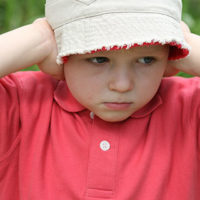Environmental influences
-

JCPP Editorial: Volume 61, Issue 06, June 2020
“Some roads less travelled—different routes to understanding the causes of child psychopathology” By Arne Lervåg
Read more -

International Day of Families
Research on the importance of attachment and positive relationships, families ability to be a mental health intervention and some timely tips for practitioners to help parents manage challenging behaviour with homeschooling and lockdown.
Read more -

A Cross-cultural Examination of Attachment Relationships and Mental Health in Adolescents
Research into the protective factors for adolescent mental health such as attachment will help us understand the challenges adolescents face.
Read more -

December 2019 issue – The Bridge
Summaries include; if parental consanguinity predicts the severity of Autistic symptoms; study the transmission of intergenerational anxiety in families; systematic review into the effectiveness of available interventions to treat PTSD; the efficacy of teacher assessments vs exams to assess performance in UK schools; relationship between intolerance of uncertainty and extreme demand avoidance in young people with Autism; and how fluctuations in external environmental noise affect the developing Autonomic Nervous System in babies.
Read more -

Noisy home environments affect autonomic reactions in infants
Previous research has suggested that children who are exposed to a stressful environment early in life are at a higher risk of adverse long-term outcomes, including mental disorders and cognitive impairment. Now, a team of researchers in the UK have monitored autonomic reactions.
Read more -

In Conversation… Professor Lucy Bowes on early life stress
Professor Lucy Bowes, Magdalen College, University of Oxford, and Head of the oRANGE Lab, discusses her research on early life stress in relation to psychological and behavioural development, the impact of bullying in adolescents, together with exciting developments with virtual reality.
Read more -

Individual changes in stress-level predict non-suicidal self-injury
In their latest study, Adam Miller and colleagues propose that these inconsistencies might be due to a reliance on “between-person” models that compare individuals with high stress levels to those with low stress levels.
Read more -

A mother’s touch: a key player in fine tuning the function of our genome
There is debate as to the importance of genetics in determining our behaviour. This debate has become enshrined perhaps due to the early focus of genetics on searching for DNA variation in our genome (termed a polymorphism) that affected protein structure, the hypothesis being that such a protein variant would not be working optimally in our body throughout our life.
Read more -

Children’s Understanding of Depression
Depression is a mental illness that affects children and especially adolescents, however little is known about how children and adolescents understand depression. Gaining an understanding of how children perceive illness can facilitate effective communication with health professionals and children’s active involvement in decision-making about their health.
Read more -

What is the effect of post-institutionalisation? A research digest
Research digest on DePasquale, Donzella and Gunnar’s (2018) study, which was published JCPP ‘Pubertal recalibration of cortisol reactivity following early life stress: a cross‐sectional analysis’.
Read more